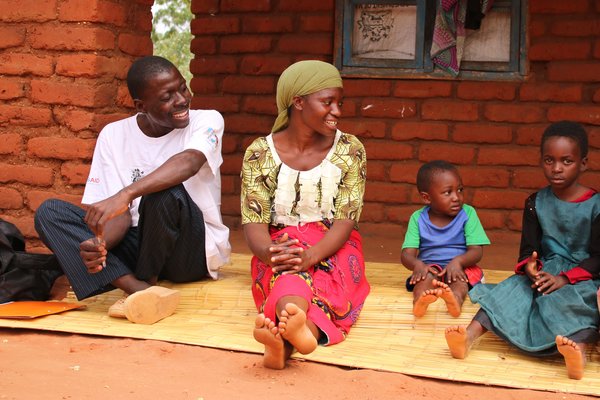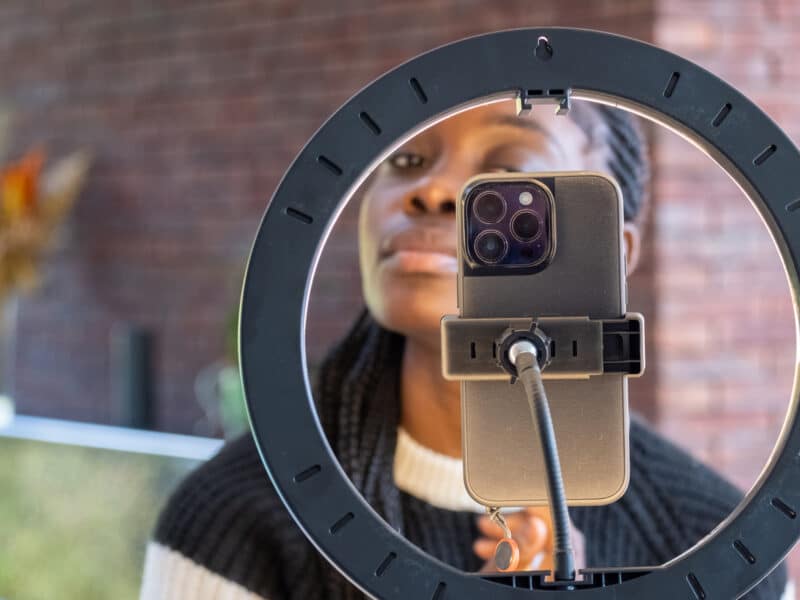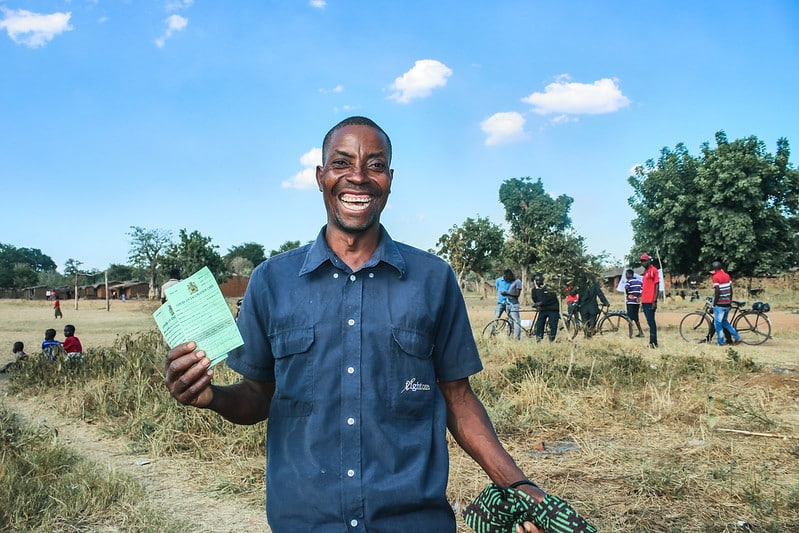Felix Chipoya had no background in health before he linked up with One Community, a comprehensive USAID-funded initiative to prevent, test for and link people to treatment HIV in Malawi.
“Before our work, very few people were getting tested, some because of long distances to health centers and for others, they simply did not see the importance of getting tested,” says Chipoya, who now works with 35 families in his rural Malawi village. “Now, people demand HIV testing services. We work hard to mobilize the community and … we are making sure that more and more people are able to get tested closer to their homes.”
Chipoya is one of more than 1,850 community health workers trained by One Community since 2015 to get more and more people tested and on treatment in Malawi. The need is enormous. Malawi has one of the highest HIV prevalence rates in the world despite the impressive progress the country has made in controlling its HIV epidemic in recent years. Young people are particularly at risk, due to early sexual activity and marriage, with 50 percent of new HIV infections in the nation’s 15-to-17-year-olds.
To date, more than 97,000 Malawians are enrolled in the One Community case management program in just seven of the country’s districts. Community resource people like Chipoya visit the homes of the most vulnerable in the community and link beneficiaries to services such as HIV testing and counseling, antiretroviral therapy (ART) and adherence support, nutritional help and activities aimed at boosting their economic situation. Additionally, they lead group gatherings in the community that focus on topics such as village savings and loans, HIV support and behavior change to help people recognize and reduce their own HIV risk.
Chipoya visits his clients regularly ensuring that they are living healthy lives. He also looks at their social and economic well-being. For clients in need of extra support he is able to identify and refer them to platforms that offer the necessary help. During his work, for example, he identified seven girls who were out of school because they didn’t have the money to pay for it. With his help, the girls were able to return to school.
“If these households are provided the support they need, they can really get out of the situation they are in,” says CCP’s Beth Mallalieu, who supports the One Community project. “They just need to be given a chance.”
One Community has developed into a massive project. In the last year alone, it helped more than 60,000 people get HIV testing. Of those tested, more than 3,400 were HIV positive, a rate of 5.7 percent, which is higher than the 4 percent national average. Health officials say the higher rate is a good sign that those at highest risk of HIV are being reached. The rate of positive HIV tests was highest among those under the age of one (15.4 percent), followed by those ages 25 to 49 (9 percent). Those who test positive for HIV can be treated, making it less likely that they will spread the disease to others because they know their status and because they can get antiretroviral therapy which can lower the amount of virus in their blood to undetectable levels.
“Using data has helped One Community HIV testing providers understand which clients need to be tested,” says Glory Mkandawire, Chief of Party for One Community. “As such, the right people are being tested, resulting in higher rates of people testing positive and being linked to the services they need.”
The project hopes to reach an additional 200,000 people in the coming year, with HIV risk reduction education, including testing 40,000 for HIV, distributing five million condoms and continuing case management for nearly 100,000 orphans, vulnerable children and their caregivers.
Workers like Chipoya are recruited from the villages where they live. This is helpful because they often hear about people in need who might not otherwise be recognized by the health system. The workers’ training is ongoing. They are now being supported by a new weekly radio distance learning program, Umoyo Wabwino, which shares new skills and reinforces old ones, through both a drama and a health talk with an expert. Chipoya and other community health workers who work nearby get together every week to listen to and discuss the newest episode.
“With more than 1,850 resource people, we can’t keep bringing them back for training,” Mallalieu says. “This way we can keep them engaged and provide the newest information to everyone.”
Chipoya says he plans to work in his community “until everyone knows their status and they are on treatment. I would like to see one day my children live in a world without HIV.”




